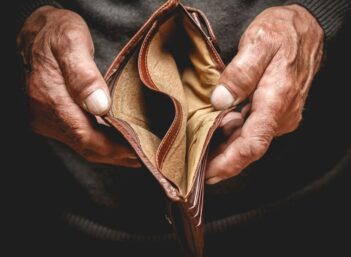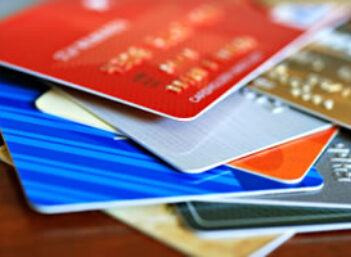Sure, online banking is convenient, but is it safe?
Today, you can achieve almost all of the transactions of your local branch quickly and easily with your personal computer or mobile device.
You can make deposits, transfer funds, view your checking history, pay bills online and even send funds to a friend with just their email address. And the list of options continues to grow.
But with the added convenience also comes added risk. One misstep and you could find your account has been accessed by online hackers, and in the blink of an eye your balance could be reduced to zero.
To ensure you're never putting your financial well being at risk, here are eight of the best tips for safe online banking.
Tip #1: Sign Up for Online Alerts
One of the best ways to keep track of your account activity is to sign up for account alerts through your bank's website preferences.
You can choose to be notified when your account drops below a certain balance; if an external transfer has occurred on your account; or if a check you've written has finally cleared. If activity is taking place that you didn't authorize, these alerts will let you know either to your inbox or via SMS messaging.
One caveat when it comes to alerts: with increased communications from your bank, you need to be sure you're reading a legitimate email. Which brings us to tip number two…
Tip #2: Beware of Phishing Scams
Most users are now aware of email scams that ask you to update your banking info online, only to steal your login credentials on a false website.
This practice has now evolved into a more targeted scam, known as spear phishing, which uses an email from a friend's hacked email account asking you to update your personal info.
Either way, the best practice when it comes to avoiding these scams is to never access your bank account from a link in an email. Always enter your bank's website directly -- either by typing in the url in the address bar or through a bookmark on your browser.
Look for the 'https://' in the url, which means you are a connected to a secure network. Also be sure to check the url -- if it's not 'your bank' .com, you may be on the verge of being hacked. Exit out of your browser immediately.
Tip #3: Create a Unique, Complex Password
If you can remember your online password, it's not strong enough.
An optimal password is 10-14 characters long, combining upper case and lower case characters, numbers and symbols. For example, '?lACpAs56IKMs' is infinitely better than 'mypassword123.'
If you must write it down, be sure to keep it in a safe place. Don't store it in a document on your computer -- you're more likely to have your computer hacked with spyware than you are to have your home burglarized and your list of passwords compromised.
Also, a good rule of thumb is to change your password every couple of months.
Likewise for your username. Choose a combination that is specific to you, but doesn't reveal your full name or too much about yourself. Think in terms of hackers, not your friends and family. How much can be obtained about you directly from your username?
Tip #4: Never Give Out Your Password
To anyone. Your bank won't ask for your password over the phone or through an email. So if you receive a notification that you need to update your account, chances are this is a scam. Your password is your key to online safety; protect it like you would the key to your home.
Tip #5: Clear Your Browser's Cache
The cache on your Internet browser is a collection of passwords and online preferences that are stored when you visit a website.
Ideally, they make browsing the web faster, but they also reveal a lot about you if accessed by intruders. You can be selective about what you clear, but the best practice is to clear your cache every day, usually when you log off of your computer. If nothing else, clear your cache at least once a week. The best part is, it takes less than a minute to do it.
On your web browser, simply find the option to 'delete browsing history.' When it asks which items to clear, make sure all the boxes are selected and hit 'delete.' When the cache has been successfully cleared, the window should close on its own or prompt you that it's done. Simple as that.
Tip #6: Never Access Your Bank Account From a Public Network
When you log on to a public network -- as in wi-fi access at a coffee shop or hotel -- your password, user name and possibly all of the information you type into your computer (keylogging) is naked to anyone with even a little technological savvy.
Only check your bank account on a secure network, such as the one at your workplace or at home where you have anti-virus protection and encrypted access. Which leads us to tip number seven...
Tip #7: Use Anti-Virus and Firewall Protection
As a basic protection against malware and spyware on your computer, anti-virus software will regularly scan your computer for illegal programs intent on stealing your personal information.
As an additional precaution, installing a LAN-based or wi-fi router with password protection adds an additional layer of protection for your sensitive data, acting as a firewall to keep out unwanted visitors.
Windows user can download the free Avast Free Antivirus software, and those on a Mac can use the iAntivirus Free Edition. If you're not utilizing anti-virus software, download one of these programs today.
Bonus Tip: When in Doubt, Call Your Bank
If you're not certain that an email is legitimate or if you've noticed a questionable action in your account history, pick up the phone and call your bank's 24-hour online banking service. They'll be able to tell you if there are any items that require attention.
Additionally, closely monitor your online history for any unauthorized transactions. The sooner you can detect any possible compromises against your account, the quicker you can take action to remedy the situation.
As online banking becomes more commonplace, online scams that try to dupe you out of your login credentials are becoming more sophisticated. However, if you invest 20 minutes in these preventative measures, you can rest assured that your online accounts will remain safe.



